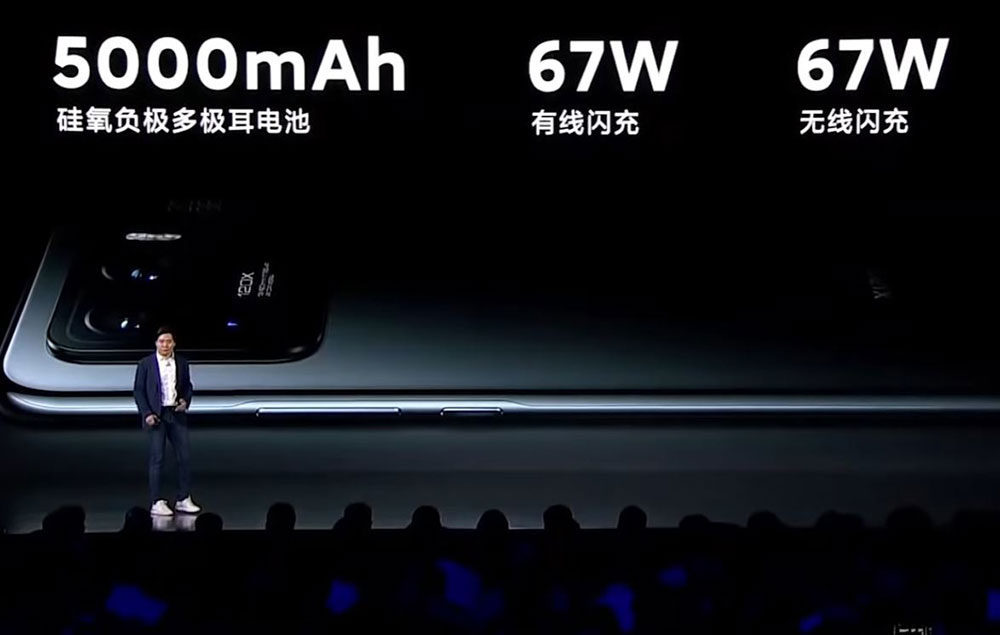
Xiaomi held a highly-anticipated launch event today for its Mi 11 line of products. However, the Mi 11 Ultra is -by far- the star of the show, mainly because of its innovative and large camera module with an OLED display in the back.
Of course, we are mobile camera enthusiasts, but consider this: the Xiaomi M11 Ultra might be the best selfie camera on the market since it uses its powerful Primary camera for selfie purposes.
The addition of a small 1-inch OLED display in the back lets people accurately frame selfies and rely on the camera’s intelligent auto-settings to do the rest. The concept was explored by selfie-brand Meizu, or even Samsung with the Z Fold 2, but Xiaomi might take it to the next level.
The Mi 11 Ultra camera hardware looks very impressive on the surface, and we’ll surely get into analysis and scoring using our Uber HW Camera score. Here is the raw data as we know it:

The Primary camera is a 50-Megapixel camera module with f/1.95 optics and the powerful Samsung 50MP ISOCELL GN2 sensor with 1.4-micron pixels. Each pixel has two-subpixel utilized for Dual-Pixel phase detection, a proven technique that led to some of the fastest AF in the industry.
The ISOCELL GN2 was introduced in February and can capture 4K at 120FPS or 1080p at 480FPs (I assume, without interpolation).
A 48 Megapixel Ultrawide camera module with f/2.2 optics is also present (Sony IMX586 sensor). As the industry realizes that Ultrawide is more critical than Zoom, you can see an arms race in this previously neglected area. We made this call years ago, which is fully reflected in our hardware and IQ camera scores launched in 2018.
The 120mm zoom camera is also very promising. It uses a periscope-style camera that was popularized by Oppo only a couple of years ago. When more information inevitably surfaces, we will have a good estimation for its performance.

All in all, these three cameras seem to provide a rock-solid mobile camera hardware foundation, and we expect the Xiaomi Mi 11 Ultra to pose a serious challenge to Samsung (in the USA). With Huawei and its formidable Mate 40 Pro camera mostly out of the picture in many markets, Samsung has the top camera in many countries. At the same time, Apple seems content just to remain “good enough” to avoid a user exodus. (Read our iPhone 12 Pro Max camera review).
Camera aside, the rest of the phone seems just as excellent. For example, the 6.8-inch AMOLED display can reach 1700 NITs of brightness, which is exceptionally high, and perhaps the highest we have seen to date. Of course, with such brightness, the display is certified for Dolby Vision and HDR10+.
The 120Hz screen refresh ensures smooth scrolling, although it wasn’t evident how low the rate can be to save battery life. And finally, there’s -also- a traditional “punch-hole” selfie camera
A Snapdragon 888 system platform ensures excellent computing performance levels for every possible usage you can imagine, from gaming to multimedia to even AI and AR/VR. That really is the best Android platform you can get, and in many ways, the “only game in town.”
Travelers will enjoy the presence of a Dual-SIM, and although the Snapdragon 888 can support multiple eSIMs, the carrier support seems lagging. If you don’t speak the local language, buying a temporary SIM is probably easier than setting up an eSIM.

To keep everything humming, Xiaomi includes a 5000 mAh battery. While the capacity might not sound impressive these days, it is still at the upper-range of what you can get in a normal-looking (large) phone.
However, the charging speed is way above average: at 67W, the charging speed promises to be one of the highest on the market. And like many high-end phones, this batter can become a 10W charging pad for other devices or phones. Reverse wireless charging has come a long way in a noticeably short time.
The Xiaomi Mi 11 Ultra checks all the boxes of a great high-end smartphone, and with such flagship products, it is no wonder that Xiaomi’s market share is surging in all categories. Is it as good as it seems? There is only one way to know.